Understanding Medicare and Home Health Care Services
As open enrollment season approaches, it’s essential for individuals to fully understand their Medicare options, especially when it comes to home health care. Whether you’re a current Medicare beneficiary or a soon-to-be enrollee, this guide aims to help navigate the complexities of Medicare for home health care services. Let’s delve into the key aspects you should consider to make informed decisions during the upcoming open enrollment period and what this means for you and your family.
Understanding Medicare Basics
When families begin the search for home care services for their parents or loved ones, a primary concern revolves around whether Medicare will cover these services. While Medicare does have the potential to cover certain home health services, such as skilled nursing, there are rules and regulations governing the types of home care services eligible for coverage through government-funded programs. Specifically, patients must be under the supervision of a physician and have a continuous care plan. Furthermore, their care plan must receive medical certification, indicating a need for intermittent skilled nursing care and/or time-limited in-home therapy services aimed at enhancing the patient’s health within a specified timeframe.
Medicare, the federal health insurance program primarily for individuals aged 65 and older, consists of different parts that cover various aspects of healthcare. For home health care, the focus is on Medicare Part A and Part B. Below is a summary of coverage, plans, and costs from the Medicare website.
- Medicare Part A: Hospital Insurance
- Home Health Care Coverage: Part A includes coverage for certain Medicare home health services, such as skilled nursing care, physical therapy, occupational therapy, and speech-language pathology services, as well as medical social services.
- Medicare Part B: Medical Insurance
- Home Health Care Services: Part B covers specific medically necessary services like part-time skilled nursing care, physical therapy, occupational therapy, and speech-language pathology services.
- $0 for covered home health care services 20% of the Medicare-approved amount for durable medical equipment (like wheelchairs, walkers, hospital beds, and other equipment) after Part B deductible is met.
- Medicare Advantage (Medicare Part C):
- Medicare Advantage plans are offered by private insurance companies approved by Medicare. These plans are an alternative to Traditional Medicare and often include Part A, Part B, and sometimes Part D (prescription drug coverage) benefits bundled together.
- Medicare Advantage plans are required to cover at least the same services as Traditional Medicare, but they may also offer additional benefits, such as vision, dental, and wellness programs.
- When it comes to home health services, Medicare Advantage plans typically cover the same services as Traditional Medicare. However, the specifics of coverage, cost-sharing, and network restrictions can vary depending on the specific plan.
- Beneficiaries in Medicare Advantage plans need to follow the plan’s rules and may have to use network providers to receive full benefits. They should review the plan’s documents to understand how home health services are covered.
To sum up, Traditional Medicare (Part A and Part B) as well as Medicare Advantage (Part C) both include home health services as listed above. The specifics of coverage, cost-sharing, and provider networks may vary between Traditional Medicare and Medicare Advantage plans, that is why it is important for beneficiaries to assess their plan options and choose the plan that works best for them.
How To Know If You Qualify
Indivduals with Part A and/or Part B who meet all of the following conditions are covered:
- You must be under the care of a doctor, and you must be getting services under a plan of care created and reviewed regularly by a doctor.
- You must need, and a doctor must certify that you need, one or more of these:
- Intermittent skilled nursing care (other than drawing blood).
- Physical therapy, speech-language pathology, or continued occupational therapy services. These services are covered only when the services are specific, safe and an effective treatment for your condition. The amount, frequency and time period of the services needs to be reasonable and they need to be complex, or only qualified therapists can do them safely and effectively. To be eligible, either: 1) your condition must be expected to improve in a reasonable and generally predictable period of time, or 2) you need a skilled therapist to safely and effectively make a maintenance program for your condition, or 3) you need a skilled therapist to safely and effectively do maintenance therapy for your condition.
- You must be homebound, and a doctor must certify that you’re homebound.
In addition to part-time or intermittent skilled nursing care, Medicare may cover additional home health services for eligible patients as well. These services include:
- Physical therapy
- Occupational therapy
- Speech-language pathology services
- Medical social services
- Part-time or intermittent home health aide care (only if you’re also getting other skilled services like nursing and/or therapy at the same time)
- Durable medical equipment
- Medical supplies for use at home
Navigating Open Enrollment
As open enrollment is the time to make changes to your Medicare coverage, it’s essential to assess your needs and make informed decisions. While our team at our affiliate, Health Care Connectors, can certainly help you with questions you may have, here are some things you can consider or review on your own:
- Review Your Current Coverage:
Evaluate your existing Medicare plan, including Part A and Part B, and assess whether it meets your home health care needs.
- Explore Medicare Advantage Plans:
Understand how Medicare Advantage (Part C) plans might offer additional benefits for home health care, such as coverage for vision, dental, and prescription drugs.
- Prescription Drug Coverage:
If your home health care requires prescription medications, explore Medicare Part D for prescription drug coverage. Consider plans that align with your specific medication needs.
- Consider Supplemental Insurance:
Learn about supplemental insurance plans that can help cover the out-of-pocket costs associated with Medicare, providing additional financial assistance.
- Provider Networks and Coverage Limits:
Check the provider networks and coverage limits of different plans, ensuring your preferred home health care providers are within the network.
- Anticipate Future Needs:
Consider any changes in your health or anticipated home health care needs to choose a plan that provides comprehensive coverage.
- Awareness of Annual Open Enrollment Time Period:
Each year Medicare open enrollment is from October 15th to December 7th. Research your coverage options prior to this date so that you can make any necessary changes before the deadline.
Conclusion
Taking the time to understand the nuances of Medicare for home health care is important preparation prior to open enrollment. By reviewing your current coverage, exploring additional options, and anticipating future needs, you can make informed decisions to ensure your healthcare needs are met effectively. Should you need assistance, please reach out to our affiliate, Health Care Connectors, or other Medicare counselors to navigate the open enrollment process successfully. Your health and well-being are paramount, and a thoughtful approach to Medicare can pave the way for a more secure future. For a free consultation or to learn more about our home health services, contact Health Care Connectors today.



